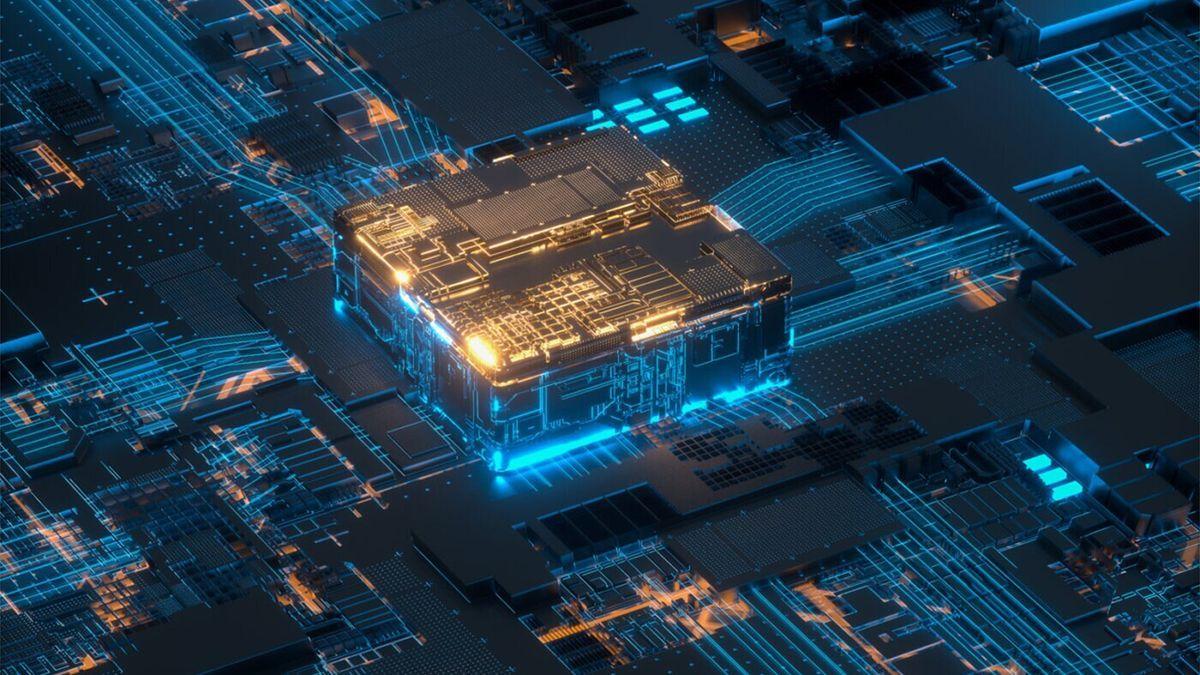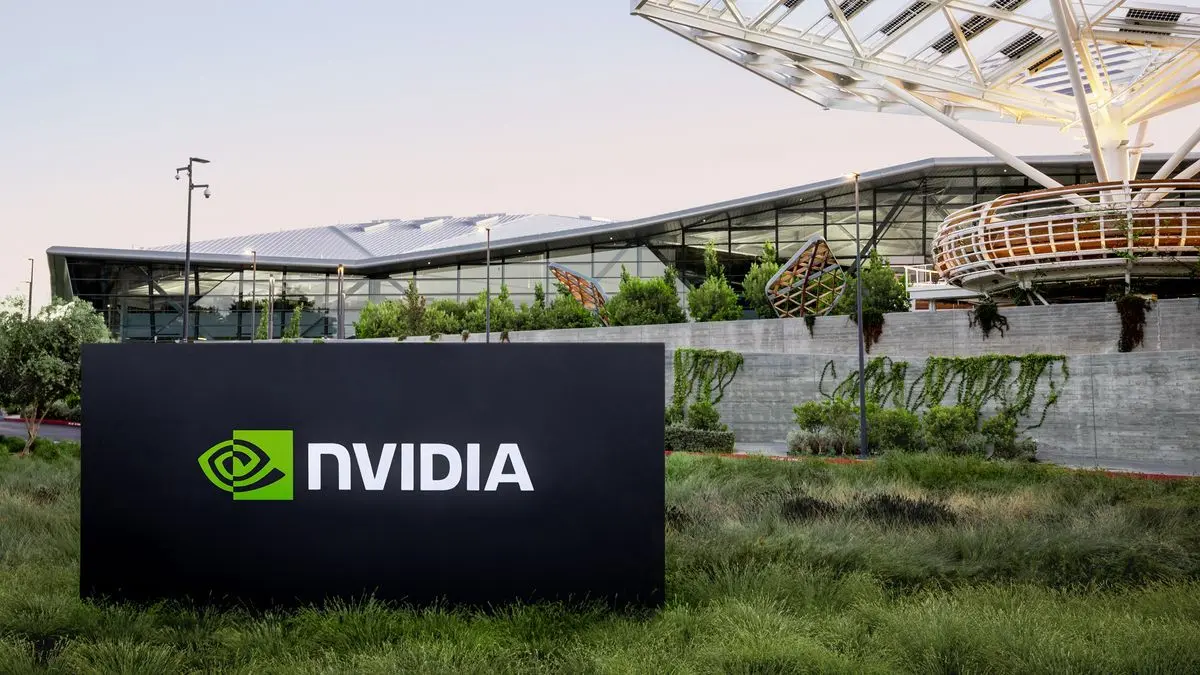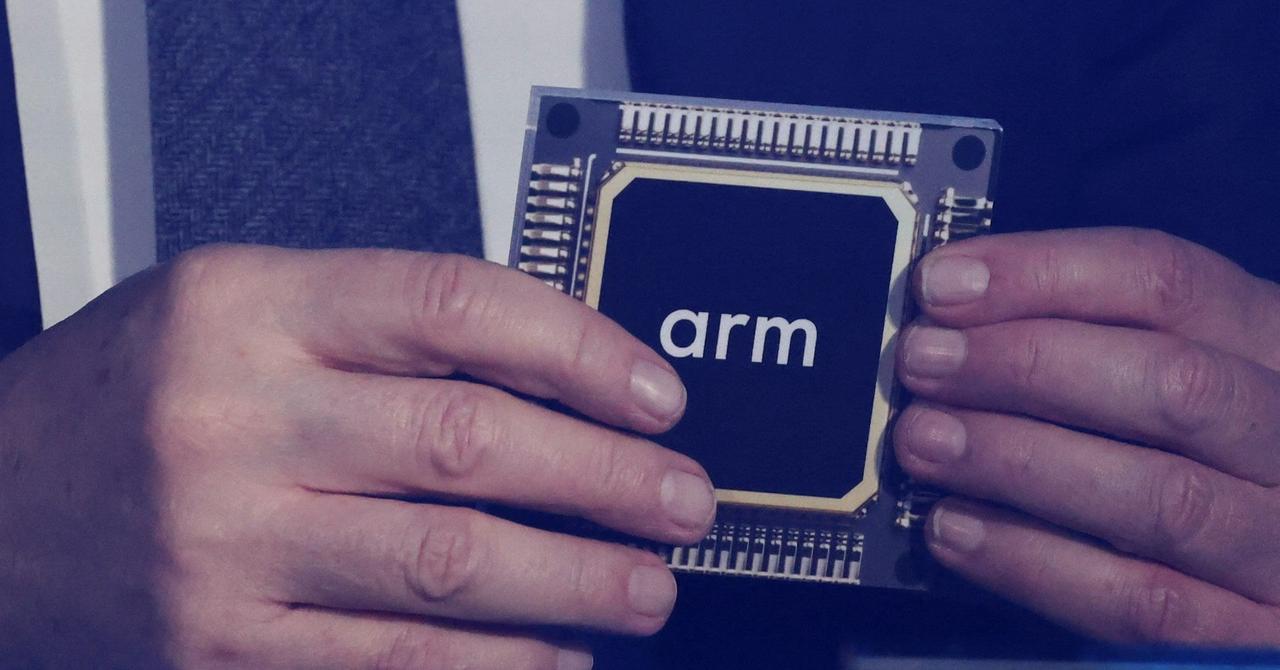Arm's Total Design Ecosystem Expands: Driving AI Innovation with 2nm Processor Development
2 Sources
2 Sources
[1]
Arm's partners develop 2nm AI processor using Arm's Neoverse -- Arm's Total Design ecosystem doubles in size on first anniversary
Samsung Foundry, ADTechnology, and Rebellions have collaborated with Arm When Arm introduced its Total Design initiative in October 2023, its success was not guaranteed. According to a blog post over at Arm, it looks like Total Design is indeed a success. Arm's Total Design ecosystem has rapidly expanded, doubling its size within a year. The ecosystem now involves over 30 companies including Samsung Foundry, ADTechnology and Rebellions who have teamed up for an AI solution to be made on Samsung's 2nm-class process technology. One of the most notable collaborations within the ecosystem involves Arm, Samsung Foundry, ADTechnology, and Rebellions, which developed an AI CPU chiplet platform based on the Neoverse CSS V3. This chiplet platform is designed for AI/ML training, cloud computing, and high-performance computing workloads. Samsung Foundry will make it on its 2nm-class process technology. "AI and HPC designs require technology solutions that deliver maximum performance, high transistor density, and energy efficiency," said Taejoong Song, Vice President and Head of Foundry Business Development at Samsung Electronics. "Samsung Foundry's 2nm GAA process is designed precisely to satisfy the most stringent HPC and AI design requirements, and we're excited to leverage the flexibility of Arm CSS and the power of the Arm Total Design ecosystem to deliver an AI CPU chiplet platform, which will further accelerate adoption of our leading-edge technology and design solutions for hyperscalers and cloud service providers." Arm Total Design is a global initiative launched by Arm to accelerate development of custom silicon solutions for AI, HPC, and datacenter applications. Arm Total Design is an ecosystem of partners, including design houses, and software companies, to collaboratively build advanced chiplets and system-on-chips. The ecosystem supports development process from design to manufacturing and uses Arm's designed Compute Subsystems (CSS) to simplify silicon development by providing standard building blocks and ability to integrate third-party components. Arm Total Design partners, such as Alphawave, Cadence, and proteanTecs, are validating their third-party IP products with Compute Subsystems (CSS) on cutting-edge nodes to meet Arm's specifications and standards. This enables partners to develop custom silicon based on CSS using the latest technology, ensuring a smooth and ready-to-use software experience. With input from 30 industry partners, Arm Total Design can enable building Arm-based multi-chiplet designs quickly.
[2]
Arm touts growing ecosystem of sustainable AI datacenter silicon
Join our daily and weekly newsletters for the latest updates and exclusive content on industry-leading AI coverage. Learn More Arm said that a year from its introduction, the Arm Total Design ecosystem has doubled in size, driving global silicon innovation for sustinability. Datacenters are constantly challenged to balance power demands with the growth of AI workloads, the increasing cost and complexity of developing chips, and the need for sustainability, Arm said. Eddie Ramirez, vice president of go-to-market, infrastructure line of business at Arm, said in a blog post the company introduced Arm Total Design a year ago to address these challenges by creating an ecosystem of partners to accelerate the development of custom silicon, bringing together key industry players to build solutions for the datacenters of the future with Arm Compute Subsystems (CSS). It has quickly grown into a multivendor, Arm-based chiplet and SoC ecosystem, bringing together capabilities from design through to foundry manufacturing and doubling to more than 30 participating companies, with Alcor Micro, Egis, PUF Security and SemiFive as the latest companies to join the ecosystem. New Arm-based solutions to power the AI datacenter sustainably Arm Total Design has sparked global collaboration, leading to real-world CSS-powered solutions for GenAI computing. Arm said an example is the news today that Arm, Samsung Foundry, ADTechnology and Rebellions are partnering to bring to market an AI CPU chiplet platform. This platform, targeting cloud, HPC, and AI/ML training and inference workloads combines Rebellions' Rebel AI accelerator built with a Neoverse CSS V3-powered compute chiplet from ADTechnology to be implemented with Samsung Foundry 2nm Gate-All-Around (GAA) advanced process technology. The platform promises to deliver performance and optimal power efficiency, with an estimated two times to three times efficiency advantage for GenAI workloads (Llama3.1 405B parameter LLMs). "AI and HPC designs require technology solutions that deliver maximum performance, high transistor density, and energy efficiency," said Taejoong Song, head of foundry business development at Samsung Electronics, in a statement. "Samsung Foundry's 2nm GAA process is designed precisely to satisfy the most stringent HPC and AI design requirements, and we're excited to leverage the flexibility of Arm CSS and the power of the Arm Total Design ecosystem to deliver an AI CPU chiplet platform, which will further accelerate adoption of our leading-edge technology and design solutions for hyperscalers and cloud service providers." This exemplifies the unique value of Arm Total Design and standards-based compute subsystems in accelerating AI silicon development by integrating Arm-optimized EDA tools, global design expertise and foundry partnerships to facilitate easy integration by AI accelerator designers, Arm said. With the rapid evolution of AI workloads, tightly coupled CPU compute is essential for supporting the complete AI stack. Data pre-processing, orchestration, database augmentation techniques, such as Retrieval-augmented Generation (RAG), and more all benefit from performance-efficiency of Arm Neoverse CPUs. We've baked support for these requirements into our CSS and through Arm Total Design, the ecosystem is already benefitting from these innovations. A new standard for purpose-built AI infrastructure CSS and Arm Total Design are helping to create the hardware foundation for a sustainable AI datacenter. Arm Total Design is already accelerating the development of Arm-based test chips and chiplet products powered by Neoverse N-series or V-series CSS. The diversity of chiplet solutions spanning cloud to edge and the pace at which they are being developed is a direct result of reducing barriers to entry by enabling broad, preferential access to the latest CSS. Just today Alcor Micro announced they are building a chiplet powered by CSS and targeting AI/ML training and inference use-cases. And recently Alphawave announced its own advanced compute chiplet built on CSS for AI/ML, HPC, datacenter and 5G/6G applications. These Arm-based chiplets exemplify the diversity, flexibility and global supply chain that only the Arm partnership can deliver. Additionally, Arm Total Design partners including Alphawave, Cadence, and proteanTecs, are validating their third-party IP products with CSS on advanced nodes to ensure compliance with Arm specifications and standards. This means partners can build CSS-based custom silicon on leading edge nodes and have a seamless out-of-the-box software experience. This type of software readiness remains a critical gateway to the potential of AI and for more than 30 years Arm has invested in ensuring software on Arm "just works." Today all major frameworks and OSes run on Arm. For the Arm Total Design ecosystem, this means the diverse set of silicon solutions that partners are bringing to market can leverage an equally vibrant and cohesive software ecosystem. One of the latest examples of this ongoing investment is the introduction of Arm Kleidi technology which optimizes CPU-based inference on Arm to open source projects like PyTorch and Llama.cpp. This is especially important for the Arm Total Design partners who are building CSS-based chiplets for edge AI computing without the need for an accelerator.
Share
Share
Copy Link
Arm's Total Design initiative has doubled its ecosystem size in a year, fostering collaborations for advanced AI processors. Samsung Foundry, ADTechnology, and Rebellions partner to develop a 2nm AI CPU chiplet platform using Arm's Neoverse technology.

Arm's Total Design Ecosystem Doubles in Size
Arm's Total Design initiative, launched in October 2023, has seen remarkable growth in its first year. The ecosystem has doubled in size, now encompassing over 30 companies, including major players like Samsung Foundry, ADTechnology, and Rebellions
1
. This expansion demonstrates the industry's strong interest in collaborative approaches to developing custom silicon solutions for AI, high-performance computing (HPC), and datacenter applications.Collaboration on 2nm AI Processor
A standout project within the ecosystem involves a partnership between Arm, Samsung Foundry, ADTechnology, and Rebellions. This collaboration is focused on developing an AI CPU chiplet platform based on the Arm Neoverse CSS V3
1
2
. The platform is designed to cater to AI/ML training, cloud computing, and HPC workloads, leveraging Samsung Foundry's cutting-edge 2nm-class Gate-All-Around (GAA) process technology.Taejoong Song, Vice President at Samsung Electronics, emphasized the importance of this collaboration, stating, "Samsung Foundry's 2nm GAA process is designed precisely to satisfy the most stringent HPC and AI design requirements"
1
2
. This partnership aims to accelerate the adoption of leading-edge technology for hyperscalers and cloud service providers.Performance and Efficiency Gains
The new AI CPU chiplet platform promises significant performance and efficiency improvements. Early estimates suggest a two to three times efficiency advantage for GenAI workloads, specifically when running Llama3.1 405B parameter Large Language Models (LLMs)
2
. This advancement could have far-reaching implications for the sustainability and capabilities of AI datacenters.Ecosystem Expansion and Diversity
Arm's Total Design ecosystem now includes a diverse range of partners, from established tech giants to emerging players. Recent additions to the ecosystem include Alcor Micro, Egis, PUF Security, and SemiFive
2
. This diversity is fostering innovation across various domains, from cloud computing to edge AI applications.Related Stories
Software Readiness and Optimization
A critical aspect of Arm's strategy is ensuring software compatibility and optimization. The company has invested heavily in making sure that "software on Arm just works"
2
. All major frameworks and operating systems now run on Arm architecture. Additionally, Arm has introduced Kleidi technology, which optimizes CPU-based inference on Arm for open-source projects like PyTorch and Llama.cpp2
.Impact on AI Infrastructure
The rapid growth of Arm's Total Design ecosystem is setting a new standard for purpose-built AI infrastructure. By reducing barriers to entry and providing broad access to the latest Compute Subsystems (CSS), Arm is enabling a diverse range of chiplet solutions spanning from cloud to edge applications
2
. This approach is not only accelerating development cycles but also promoting a more sustainable and efficient AI datacenter model.As the AI industry continues to evolve at a breakneck pace, Arm's collaborative ecosystem approach appears well-positioned to drive innovation and address the complex challenges of power efficiency, performance, and sustainability in AI computing infrastructure.
References
Summarized by
Navi
[1]
Related Stories
Arm Aims to Capture 50% of Data Center CPU Market by End of 2025, Driven by AI Boom
01 Apr 2025•Technology

Arm Joins Nvidia's NVLink Fusion Ecosystem, Enabling Custom AI Server Development for Hyperscalers
18 Nov 2025•Technology

Arm's Data Center Dominance: 14-Fold Customer Surge Driven by AI Boom
09 Jul 2025•Technology

Recent Highlights
1
ByteDance's Seedance 2.0 AI video generator triggers copyright infringement battle with Hollywood
Policy and Regulation

2
Demis Hassabis predicts AGI in 5-8 years, sees new golden era transforming medicine and science
Technology

3
Nvidia and Meta forge massive chip deal as computing power demands reshape AI infrastructure
Technology





